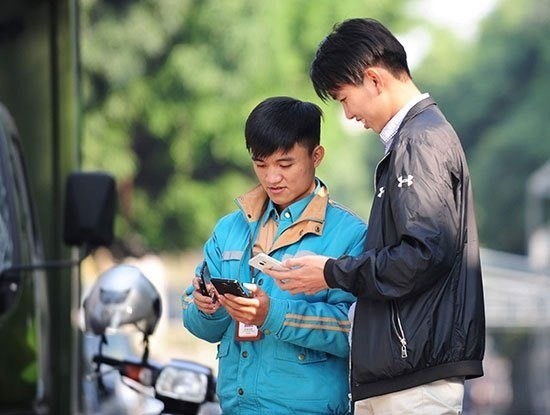
The latter is a key component of the Government’s Resolution 01, in which the Ministry of Information and Communications (MIC) will grant test 5G frequencies to operators this year and expand them in 2020.
Head of the Policy and Planning Division under the Ministry of Information and Communications’ Authority of Communications Tran Tuan Anh said Vietnam defined 5G as network infrastructure for all sectors of the economy, not just for communication. It would be expanded, raising the working capacity of all sectors based on radiocommunication infrastructure.
Under the vision of Qualcomm, Nokia, Samsung and other companies developing 5G services and technology, the 5G mobile network will boost self-driving cars, IoT and cloud computing.
Anh told enternews.vn that there were currently very few terminals supporting 5G networks, so this technology did not yet have the capability to reach everyone. With the needs of users today, 4G still met their demands.
“The implementation of 5G in Vietnam will depend on the role of network operators and ICT enterprises. Vietnam also needs to build research centres on technology for 5G, in addition to corresponding legal documents,” Anh said.
Worldwide, there are 18 5G networks deployed by more than 20 suppliers. There are also 134 5G networks being tested in 62 countries around the world. By 2019, the world will officially adopt 5G standard at the World Radiocommunication Conference of the ITU, a specialised UN agency for information and communication technologies.
The Viettel Military Industry and Telecoms Group is aggressively completing work to prepare infrastructure and human resources for 5G technology with the expectation of becoming the first operator in Vietnam to deploy a 5G network.
With a number of positive results in preparing 5G, Viettel aims to complete a 5G broadcasting station version 1 in 2019, test 5G station network by 2020 and be ready to trade in 2021.
Viettel Deputy General Director Cao Duc Thang said Viettel was ready to participate in the 5G test in 2019.
“We hope that there will be information on frequencies soon for Viettel and other operators to prepare appropriate design and equipment, in order to meet the frequency that the MIC is expected to use for 5G,” said Thang.
In an interview with ictnews.vn, CEO of Huawei Vietnam Fan Jun said that Vietnam was the most dynamic emerging market in Southeast Asia.
He said the Prime Minister and Minister of MIC had repeatedly mentioned the development of 5G in Vietnam, and Vietnamese operators were willing to test 5G.
He said the realisation of 5G required four basic conditions including national industry policy, frequency planning, preparation of application infrastructure and training of talents.
These four basic conditions are indispensable. Different areas will have different difficulties and challenges, thus it’s necessary to have the participation of many parties working together, he added.
In this regard, Jun said his firm was ready to strengthen dialogue with the Government and other network operators and partners related to 5G to promote the development of the technology in Vietnam.
























